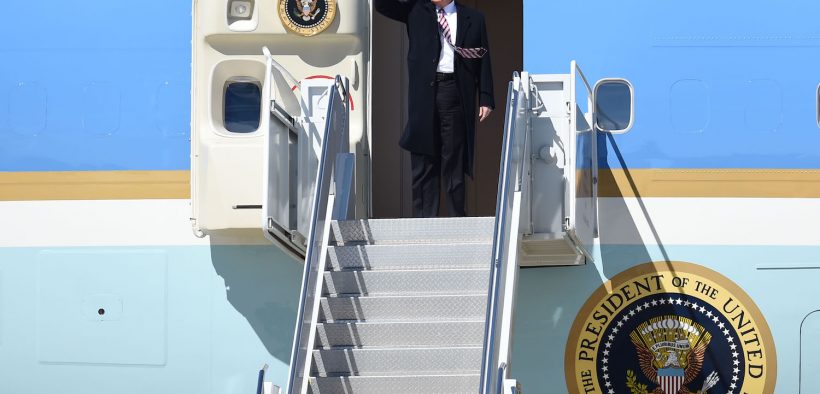Trump Considering Executive Order to Force Citizenship Question on Census

President Donald Trump is continuing the battle to add a citizenship question to the 2020 census despite a Supreme Court ruling blocking the question.
The Department of Justice is seeking a new rational to implement a citizenship question into the 2020 census after being blocked by the Supreme Court, with a district court giving the administration until Friday to provide new reasoning or commit to leaving the census without the question.
After the Supreme Court’s decision it appeared the White House was conceding the census dispute, until President Trump insisted his administration would continue to push for the citizenship question.
“We’re thinking about doing that, we have four or five ways we can do it, it’s one of the ways we’re thinking about doing it very seriously,” Trump said on Friday after being asked about adding the question with an executive order.
“We can start the printing (of the census forms) now and maybe do an addendum after we get a positive decision, so we’re working on a lot of things, including an executive order,” he added.
While adding a citizenship question to the census might appear uncontroversial at first, critics argue it would skew congressional maps to inaccurately represent the population by deterring immigrants from registration. After the Supreme Court ruled that partisan gerrymandering is beyond the rule of the courts, Democrats fear the census question would further entrench unfavorable legal districting.
The Trump administration argues the question would help enforce the Voting Rights Act, which is aimed at protecting minority voter’s rights. The Supreme Court voted down the White House’s explanation, however, with Chief Justice John Roberts writing that the current rational “seems to have been contrived.”
“I have a lot of respect for Justice Roberts, but he didn’t like it, but he did say, ‘Come back,’ essentially he said, ‘Come back,'” Trump said, who contradicted his administration’s rational on Friday by saying the number one reason for adding the question is “for districting.”
The question’s opponents cite the newfound computer files of a deceased GOP strategist as evidence that the Trump administration’s push for the census question is motivated by forming favorable political maps for Republicans. In his uncovered documents, the redistricting expert wrote that adding the census question “would be advantageous to Republicans and non-Hispanic whites,” and diminish the voting power of Hispanics.
Legal experts disagree on whether an executive order would be upheld by the Supreme Court. The DOJ’s new rational on Friday cites the Supreme Court case Trump vs. Hawaii, which found that discriminatory motives behind the president’s first travel ban did not influence judgment of the motivations guiding the third version. In this interpretation, prior rejections of the citizenship question based on evidence of its politicized motives would be rendered null in new court decisions.
“Executive orders do not override decisions of the Supreme Court,” Thomas Saenz, president and general counsel of the Mexican American Legal Defense and Educational Fund, said in a statement Friday.
Other experts believe the conservative-majority Supreme Court would affirm President Trump’s order, granting legitimacy to his expansive interpretation of executive power and the legal use of Trump vs. Hawaii in future disputes.
“If the President of the United States were to issue an executive order, supported by his full Article II powers, directing that the citizenship question be included in the 2020 census, I believe the Supreme Court would affirm the constitutional power of the president to include the citizenship question in the census,” former federal judge J. Michael Luttig told Axios.







